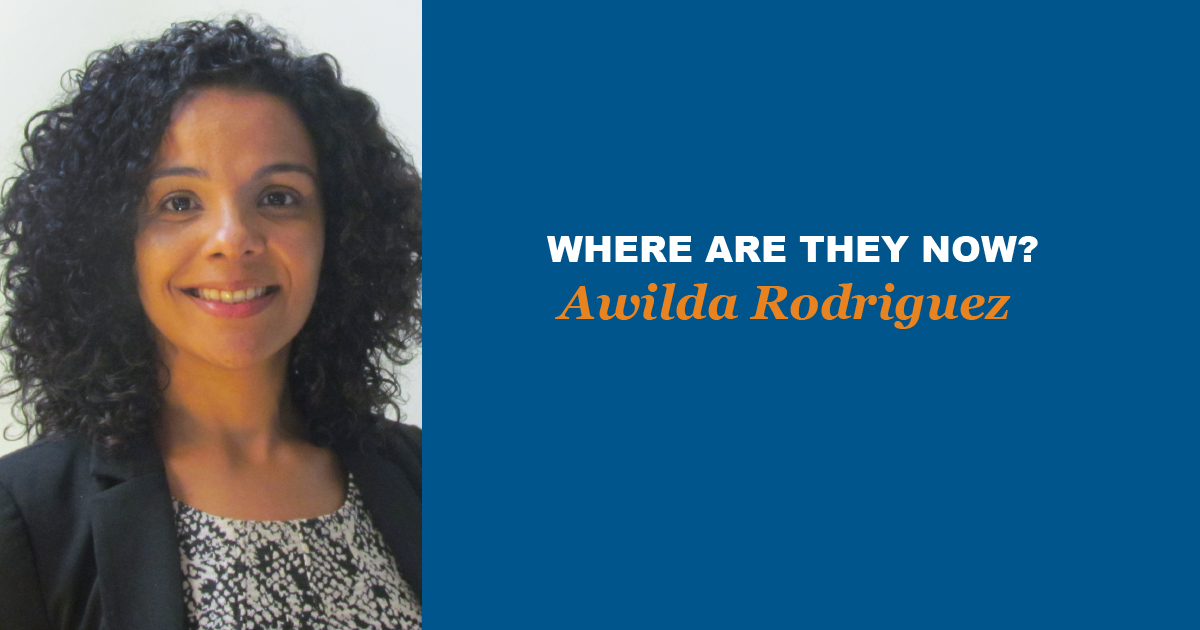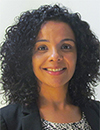A Q&A with Awilda Rodriguez, 2012 MDRC Doctoral Fellow

This is the fourth in a series of Q&As with past participants in MDRC’s Judith Gueron Minority Scholars Program in which they reflect on their experiences at MDRC and discuss what they’re up to today.
 About Awilda Rodriguez: Rodriguez graduated from the University of Pennsylvania Graduate School of Education with a PhD in Higher Education. After completing her doctoral work, she worked at the American Enterprise Institute. For the past five years, she has been Assistant Professor at the Center for the Study of Higher and Postsecondary Education at the University of Michigan. Her research focuses on equitable access to college prep coursework, like Advanced Placement, and on college choice and policies that promote access for Black, Latinx, and low-income students. In the spring semester, she usually teaches Public Policy and Higher Education.
About Awilda Rodriguez: Rodriguez graduated from the University of Pennsylvania Graduate School of Education with a PhD in Higher Education. After completing her doctoral work, she worked at the American Enterprise Institute. For the past five years, she has been Assistant Professor at the Center for the Study of Higher and Postsecondary Education at the University of Michigan. Her research focuses on equitable access to college prep coursework, like Advanced Placement, and on college choice and policies that promote access for Black, Latinx, and low-income students. In the spring semester, she usually teaches Public Policy and Higher Education.
What drew you to apply for a doctoral fellowship from MDRC’s Gueron Minority Scholars Program?
I was excited to be able to work at MDRC because its reputation precedes it — I understood it to be a place where there were incredibly smart people doing rigorous research. What I didn’t expect was that people would be so nice and supportive. There was an intentionality behind their support. It was clear that folks were invested in my development.
How did the fellowship support your dissertation research? What were you able to accomplish during your tenure as a fellow?
My dissertation was on college match (or undermatch); at the time, folks in the K-12 department were working on the College Match project. My prior experience was mostly working with large datasets (and not people). MDRC exposed me to an amazing opportunity where I was able to sit in on meetings and learn about the implementation side of the work. How do you actually work with high school counselors to make change? It was also pretty cool to be in meetings with folks who were cited all over my dissertation.
How did your time spent as a doctoral fellow at MDRC influence your professional pursuits?
The opportunity to see how the College Match project unfolded behind the scenes was formative. Because most of my experience had been confined to large datasets and running code in SAS, this opportunity gave me insight into all the work and planning (and sometimes messiness) that goes into evaluating programs. For example, what happens when a project doesn’t go as planned — like when there is turnover in leadership and research partnerships change? These were all very important lessons to ensure that I keep my own research grounded and meaningful. It also gave me a realistic peek under the hood of what large research projects entailed.
What would you say are the benefits of being a doctoral fellow at MDRC?
The MDRC doctoral fellowship allowed me to build relationships with folks that have endured to this day. Projects come and go. And believe it or not, there may come a day where your work has deviated from your dissertation topic. But relationships with people who are kind, smart, and who care about improving the circumstances of low-income people — those are important to hold on to. My trajectory would have been fundamentally different had I not had this opportunity — and for that I am very grateful. In fact, [MDRC Senior Fellow] Fred Doolittle currently serves as a mentor on one of my current grants that funds a randomized control trial. He continues to be generous with his time — years after my summer fellowship.






